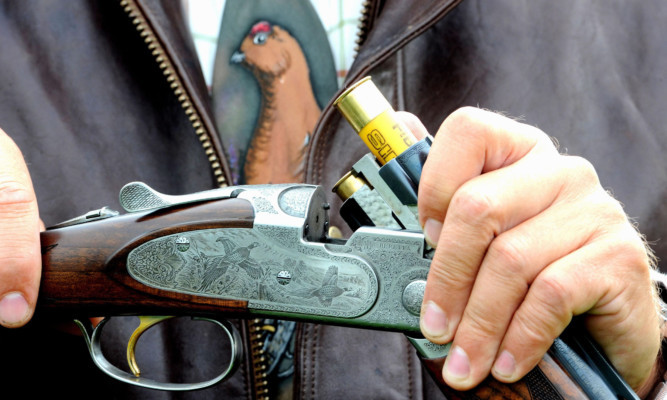Concerns have been raised that plans to reform Police Scotland’s firearms and licensing sections could compromise public safety.
Liberal Democrat justice spokeswoman Alison McInnes has written to Chief Constable Sir Stephen House about the potential loss of specialist civilian staff.
The reform of the force has come under fire following the deaths of Lamara Bell and John Yuill in a crash on the M9 that took police three days to investigate.
Parliamentary questions lodged by Ms McInnes reveal that the number of civilian firearms licensing staff reduced from 35.5 to 32 during the force’s first two years.
Over the same period, the number of civilian firearms enquiry officers (FEOs) also reduced from 41 to 34.
In her letter, Ms McInnes said she had been told that it was proposed to cut that number to 14 despite the forthcoming introduction of a licensing scheme for air weapons.
She wrote: “A number of Police Scotland staff have contacted me to express concerns that these plans risk compromising public safety and the efficiency and professionalism of the service.
“They argue that three days of training in a classroom is insufficient to prepare people for the complex task of granting, renewing, revoking and refusing firearms licenses.
“Staff who have contacted me are seriously worried that these officers will be ill-equipped in comparison to the expertise which dedicated FEOs currently possess.
“They believe that hundreds of officers undertaking this role alongside their normal duties won’t have the same opportunities to gain vital experience, develop expertise and competence, and gain as full an understanding of the subtleties involved in identifying applicants who may pose a risk to the wider public or themselves.
“The staff who have contacted me are also concerned that under the revised model staff and officers would have inadequate time and resources to effectually meet the demands currently placed upon them.”
Ms McInnes called on Sir Stephen to explain the reasoning behind the proposed changes and give assurances that public safety would not be affected.
The plans are likely to be discussed at the next meeting of the Scottish Police Authority in August, according to the letter.
It also highlighted figures obtained by the party through a Freedom of Information request showing that commercial explosive certificates and licenses across Scotland are now handled by two police officers based in Edinburgh, with 13 other trained civilian staff around the country.
Ms McInnes said she was surprised that none were based in Aberdeen “given the importance of explosives to the energy industry”.
Police Scotland Assistant Chief Constable Wayne Mawson said: “Proposals are currently under consideration to allow Police Scotland to deliver the most effective and efficient service to the individuals who wish to possess firearms while maintaining public safety.
“These proposals are currently subject to staff consultation but are designed to increase police staff numbers to such a level needed to meet the demand created by the number of certificate holders in Scotland.
“There is no intention to remove administrative posts and have staff roles backfilled by police officers contained in these proposals.
“Following the review of the level of firearms licensing demand combined with the cyclical nature of the certificate renewal process, members of police staff will continue to be employed by Police Scotland in the role of firearms enquiry officers and be supported by operational police officers.
“There is no substantial deviation from fundamental method of service delivery model in place before April 2013 but it will now be better designed to provide equitable access to firearms licensing services across the country, and this has been supported by the introduction of a national training programme for police officers and police staff to ensure consistency of practice.
“Police Scotland continues to recognise the valued contribution to policing made by members of police staff and that the future design of the firearms licensing function will bring the necessary flexibility to deliver effective policing to our communities and provide best value to the public purse.
“Any proposals will need to be approved by the Scottish Police Authority as well as consultation with staff.”
